Classic Commentaries and Studies on Daniel (21 vols.)
Digital Logos Edition
Overview
This massive twenty-one volume collection features some of the best commentaries and studies on the Book of Daniel from the late nineteenth and early twentieth centuries. With scholars and authors such as Moses Stuart, Charles H. H. Wright, James Moffatt, E. B. Pusey, and S. P. Tregelles, Classic Commentaries and Studies on Daniel (21 vols.) offers over 6,000 pages of interpretation, observations, translations, contextual history, and application on this highly influential and sometimes controversial book of the Old Testament. The twenty-one volumes contained in Classic Commentaries and Studies on Daniel (21 vols.) have had an enduring impact on Old Testament exegesis, and this exceptional collection provides easy accessibility to this wealth of significant scholarship.
This collection is essential for students, scholars, pastors, historians, teachers of the Bible, or anyone studying the Book of Daniel. With Logos Bible Software, this collection is completely searchable, with passages of Scripture appearing on mouse-over, as well as being linked to the Hebrew and Aramaic texts and English translations in your library. This makes these texts more powerful and easier to access than ever before for scholarly work or personal Bible study. With the advanced search features of Logos Bible Software, you can perform powerful searches by topic or Scripture reference—finding, for example, every mention of “Nebuchadnezzar,” or “Chaldeans.”
This title is included in the following collections
You can save when you purchase this product as part of a collection.
Logos 8 Collector's Edition Le...
$11,399.99$11,399.99Logos 9 Collector's Edition Le...
$11,399.99$11,399.99Logos 8 Ultimate Legacy Librar...
$21,749.99$21,749.99Logos 9 Ultimate Legacy Librar...
$24,999.99$24,999.99

- Over six thousand pages dedicated to the Book of Daniel
- Focused works on the prophecy in Daniel
- Noted authors from a wide variety of backgrounds
- Title: Classic Commentaries and Studies on Daniel
- Volumes: 21
- Pages: 6,167
- A Commentary on the Book of Daniel, by Moses Stuart
- A Commentary on the Book of Daniel, by D. L. Shirres
- A Critical Commentary on the Book of Daniel, by J. Dyneley Prince
- Daniel and His Prophecies, by Charles H. H. Wright
- A Critical Commentary on the Book of Daniel, by Alexander Arthur
- A Dissertation on the Seventy Weeks of Daniel the Prophet, by John Stonard
- Literary Illustrations of the Bible: The Book of Daniel, by James Moffatt
- In and Around the Book of Daniel, by Charles Boutflower
- The Book of Daniel: Its Prophetic Character and Spiritual Meaning, by Willard H. Hinkley
- The Book of Daniel or The Second Volume of Prophecy, by James G. Murphy
- A Critical and Historical Interpretation of the Prophecies of Daniel, by Nathaniel S. Folsom
- The Book of Daniel: A Composite Revelation of the Last Days of Israel's Subjugation to Gentile Powers, by W. C. Stevens
- The Sealed Book of Daniel Opened, by William C. Thurman
- Lectures on the Book of Daniel, by Leonard Strong
- The Prophecies of Daniel Expounded, by Milton S. Terry
- Remarks on the Prophetic Visions in the Book of Daniel, by S. P. Tregelles
- Lectures on the Book of Daniel, by John Cumming
- Thoughts, Critical and Practical, on the Book of Daniel, by Uriah Smith
- Daniel I-VI: An Exposition of the Historical Portion of the Writings of the Prophet Daniel, by Robert Payne Smith
- Daniel the Prophet: Nine Lectures Delivered in the Divinity School of the University of Oxford, by E. B. Pusey
- Outlines of Lectures on the Book of Daniel, by F. A. Cox
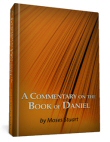
Moses Stuart's in-depth, verse-by-verse commentary focuses on the Hebrew and Chaldee texts of the Book of Daniel. Stuart also covers the personal history of Daniel, the style and aesthetical character of the text, Apocryphal additions to Daniel, and more.
The true student of the Scriptures will welcome this volume as a guide in the investigation of the most difficult and interesting portion of the word of God, as a store-house of facts, critical remarks, and illustrations.
—Bibliotheca Sacra
Moses Stuart was an American Bible Scholar, born in Connecticut. He was also a pastor and professor at Andover Theological Seminary. Called the “father of exegetical studies,” Stuart also trained over 100 missionaries. In addition to this commentary, Stuart also wrote Conscience and the Constitution, Commentary on the Epistle to the Hebrews, Commentary on the Epistle to the Romans, and Winer’s Greek Grammar of the New Testament.
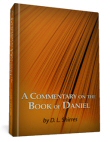
David Logan Shirres moves chapter-by-chapter through the Book of Daniel, using unadorned language to plainly discuss the text. "The prophetic parts of this book are rendered easy by comparing Scripture with Scripture," Shirres writes in the preface, "and the prospect of glory is shown to be very near, to the great joy of all who truly look for His appearing."
D. L. Shirres is the author of numerous commentaries on the Bible, including A Commentary on the Apocalypse and A Commentary on the Acts of the Apostles.
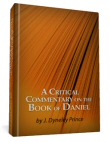
Prince divides his commentary on the Book of Daniel into three parts: a general introduction to the book, a critical commentary, and a philological commentary reserved for the discussion of all the purely technical points. Includes four indices: of subjects, of Aramaic, Assyrian, and Hebrew words and stems.
Many useful remarks are contained in the critical commentary. Of special value are the notes on such subjects as the Chaldeans, the Greeks in Assyro-Babylonian inscriptions, the fall of Babylon, and Medes and Persians. Perhaps the most important service which this commentary does for us is the use which Professor Prince makes of the cuneiform inscriptions in the interpretation of the Book of Daniel. The results of his special studies appear on every page, especially in the philogical commentary, and are of great value.
—The American Journal of Semitic Languages and Literatures
J. Dyneley Prince (1868–1945) was educated at Columbia University, the University of Berlin, and Johns Hopkins University. Prince was a professor of Semitic Languages at New York University for ten years before moving to Columbia, where he would teach for thirty-five years. Prince also served as minister to Denmark and Yugoslavia.
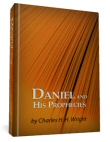
Wright's Daniel and His Prophecies explores the Hebrew and Aramaic, the Septuagint version, and the historical narratives in the Book of Daniel, before devoting over 200 pages on the prophecies contained therein.
Dr. Charles H. H. Wright's Daniel and His Prophecies is the best book on Daniel from a conservative standpoint that has appeared in many years.
—The Hartford Seminary Record
C. H. H. Wright (1836–1909) was born in Dublin an educated at Trinity College, Dublin. A prolific author and lecturer, Wright taught Hebrew in the Universities of Oxford, London, Manchester, and Wales.
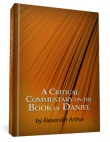
Arthur provides a survey of the most popular interpretations of the Book of Daniel before distilling his own thoughts on the most common troubles this difficult book of the Bible presents.
Alexander Arthur is the author of A Brief Commentary on the Book of Revelation and The Millennial Church.
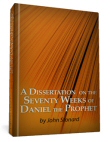
Stonard provides four introductory chapters on prophecy in the Bible before breaking his examination of the Book of Daniel into five focused sections of study.
The 'Dissertation' is exceedingly elaborate, and for the distribution of the materials of which is composed, and the order and fitness of the discussions which it includes, is entitled to high praise as the work of a scholar. We feel bound, both on account of the interest, importance, and difficulties of the subject to which it relates, and of the manner in which it is executed, to recommend it to our theological readers as highly deserving of their attention.
—The Eclectic Review
John Stonard was rector of the parish in Aldingham Lancashire and also the author of a commentary on the prophecy found in Zechariah.
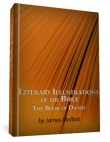
Using illustrations and quotations from literature, poetry, biography, and more, Moffatt seeks to illuminate biblical verses found in the Book of Daniel by placing "lighted candles beside the text of Scripture."
The authors quoted cover a remarkably wide range, from Shakespeare, Tennyson, and Browning to Walt Whitman and Maxim Gorky. While these books will be of interest to the average reader, they will prove of special help to preachers and teachers.
—The Princeton Theological Review
James J. Moffatt (1870–1944), was a graduate of Glasgow University. He first ministered before becoming Professor of Greek and New Testament Exegesis at Mansfield College, Oxford in 1911. He returned to Glasgow in 1915 as Professor of Church History at the United Free Church College. From 1927–1939 he was Washburn Professor of Church History at the Union Theological Seminary, New York.
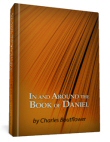
Charles Boutflower examines the Book of Daniel verse-by-verse and explores the difficulties in interpreting the scriptures with historical records. Includes a highly detailed table of contents, illustrations, and a general index and an index of principal Scripture passages commented on.
In the end the reader will probably come to the conclusion that there is no more interesting examination of the Book of Daniel than the present work.
—Theophilus G. Pinches, author of An Outline of Assyrian Grammar, The Religion of Babylonia and Assyria, and The Old Testament in the Light of the Historical Records and Legends of Assyria and Babylonia.
Charles Boutflower was vicar of Terling, Essex and author of numerous books and essays, including "On the Meaning of the Word 'asîtu'" in The American Journal of Semitic Languages and Literatures, vol. 15.
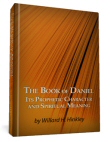
Willard Hinkley examines the Book of Daniel through the teachings of 18th century Christian mystic Emanuel Swedenborg.
Willard H. Hinkley was pastor of the Church of the New Jerusalem in Brookline, Massachusetts.
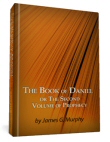
After an introduction to prophecy in the Bible and the Book of Daniel, Murphy concentrates on the four visions of Daniel in chapters 7–12.
The arrangement is good. The comments are full, and include historical, geographical, and biographical explanations. The volume is valuable, and it adds not a little to the interpretation of Daniel.
—The Baptist Quarterly Review
James G. Murphy was an author and a professor of Hebrew and Old Testament at Assembly’s College, Belfast.
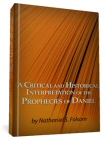
The following work contains not a commentary on the entire Book of Daniel, but an interpretation of the prophetic parts found in chapters 2, 7, 8, 9, 11, and 12.
Mr. Folsom's work contains a very calm and temperate examination of those portions of the Book of Daniel which involve the most difficulty. By such studies, light is elicited; the word of God honored; and religion advanced.
—The Christian Review
Nathaniel S. Folsom was a professor of Biblical literature at Meadville Theological School.
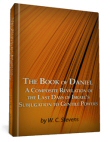
With an introduction by James Gray, Dean of the Moody Bible Institute of Chicago, W. C. Steven's commentary on the Book of Daniel appeared during a dark period in history—World War One. With many commentators altering their interpretation of Daniel to fit the times, Steven's work presented a balanced view of the Scriptures and a plea to spread the Gospels marked with this question: "Would it be well for the Church for Him to come and find her far behind in this business?"
Dr. Stephens is a close student and gets at the truth put forth in this interesting prophecy in a way to be helpful to his readers.
—Herald of Gospel Liberty
The best Bible teacher is he who lets God do the most teaching through his lips, of by his pen, and Mr. Stevens has the wisdom to perceive and act on this principle.
—James M. Gray, from the Introduction
W. C. Stevens was Principal of the Missionary Training Institute for the Christian and Missionary Alliance in Nyack, N.Y.
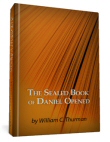
William C. Thurman uses astronomy as a lens to examine the Book of Daniel. Includes tables, charts, drawings, and a detailed index.
We have read the interesting and elaborate work before us with satisfaction and profit, and believe it settles some things of importance in prophetic interpretation, and raises points the pursuit of which must contribute to a better knowledge of what God has written in the Scriptures of truth. The first part of the book, which deals with mathematical and astronomical details, is altogether fresh and original.
—The Prophetic Times
William C. Thurman is the author of numerous books, including The Ordinance of Feet Washing: As Instituted by Christ, Three Important Questions Considered, To the Christian World, and To the Disappointed and Tried: Daniel 12:10.
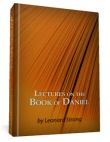
These lectures are the result of successive teachings of the Book of Daniel, delivered at Torquay during the winter of 1870–71. Strong revised and put these lectures into book form at the request of friends and attendees.
The lectures are not erudite or difficult; they illustrate Scripture by Scripture, and whether the reader agrees with all the conclusions or not, the perusal of the book, and the examination of the passages referred to, will well repay the time thus spent.
—The Christian
Leonard Strong (1797–1874) was the son of a Church of England clergyman and served as a midshipman in the British Navy. After studying at Oxford, Strong took a post as rector of St. Matthew's in Demerara and became a strong abolitionist.
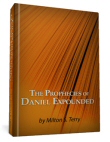
Milton Terry's The Prophecies of Daniel Expounded focuses on the prophetic portions of the Book of Daniel and aims to present a balanced view of the Scriptures in a series of exegetical essays.
The work as a whole is a masterpiece of exegesis.
—The Reformed Quarterly Review
Milton S. Terry was Professor of Old Testament Exegesis at the Garrett Biblical Institute and author of numerous books including Biblical Hermeneutics, Man's Antiquity and Language, Biblical Apocalytics, and The New Apologetic.
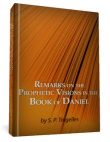
Through a series of essays, Tregelles examines the Book of Daniel, defending its authenticity. Tregelles focuses on the prophetic portions he feels many biblical commentators have negligently interpreted from preconceived ideas and perspectives.
Its scholarship, its learning, its vigor, its clearness, are such as greatly to commend it to every prophetic student.
—The Quarterly Journal of Prophecy
Samuel Prideaux Tregelles born in 1813, was a giant of biblical scholarship during the 19th century. His scholarly endeavors cover the whole gamut of biblical and theological study, from Hebrew grammar and lexicography, to New Testament textual criticism. Most well-known for his work in textual criticism, he is one of only a handful of scholars to have produced a complete critical edition of the Greek New Testament single-handedly. His efforts laid the foundation for much of the text critical work of the nineteenth and twentieth centuries, for scholars such as Westcott and Hort, Eberhard Nestle, Kurt and Barbara Aland, and Bruce Metzger. Known for his vast knowledge on virtually any topic, it is said that he was "able to shed a light upon any topic that might be introduced," but that asking could be dangerous because, "doing so was like reaching to take a book and having the whole shelf-full precipitated upon your head." He died in 1875 just following the completion of his tour de force critical edition, The Greek New Testament, Edited from Ancient Authorities, which was seen to publication after his death by Fenton J. A. Hort in 1879.
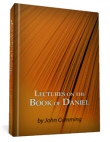
John Cummings turned a congregation of eighty into eight-hundred with his passionate preaching and his ability to articulate complex biblical passages into easy to understand terms. Through twenty-eight lectures, John Cumming explores the Book of Daniel.
It is written in Dr. C's best manner, and is marked by great copiousness and often elegance of thought, warmth of feeling, and brilliancy of diction.
—Theological and Literary Journal
John Cumming (1807–1881) was an influential and renowned preacher of the National Scottish Church in Covent Garden. He published approximately one hundred eighty books in his lifetime.
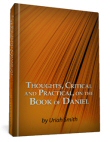
In Thoughts, Critical and Practical, on the Book of Daniel, Smith goes verse-by-verse through Daniel after giving a thorough introduction.
Uriah Smith (1832–1903) was a prolific author and editor of the Review and Herald for fifty years. His book Daniel and the Revelation is a classic text on Adventist eschatology. Smith founded Battle Creek College in 1874 and was professor there for eight years.
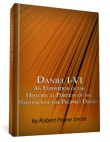
Initially printed in serial form in Homiletic Magazine, the editor felt these twenty-two essays on the first six chapters of the Book of Daniel by Smith warranted a stand-alone volume for their popularity and practicality for preachers and teachers.
Dr. Payne Smith's book is an exposition with distinct homiletical purposes in view. Every page bears the mark of abundant research, and because it is not of the immediate occasion, but has been stored up and made the writer's own, its fruit is a genuine originality.
—The Expository Times
Robert Payne Smith was Regius Professor of Divinity at the University of Oxford. In 1870, he was appointed Dean of Canterbury by Queen Victoria. He was the Bampton Lecturer in 1869 and author of Thesaurus Syriacus, later translated into English by his daughter as A Compendious Syriac Dictionary.
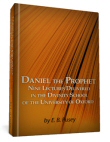
Daniel the Prophet contains nine lectures by E. B. Pusey delivered to the Divinity School of the University of Oxford.
In truth, Dr. Pusey's Daniel the Prophet is one of the most important productions of the age. Good sense, strong thought, sound learning, exquisite sentiment, and a fine tone of Christian reverence and humility characterize it throughout.
—London Quarterly Review
Never before has such a marvelous store of learning been brought to bear upon any portion of the inspired Canon.
—The Ecclesiastic Review
E. B. Pusey was a leader in the Anglo-Catholic Oxford movement within the Church of England and was Regius Professor of Hebrew and canon of Christ Church at Oxford. He shared with other brilliant young Oxford conservatives concern about the rising tide of biblical and theological liberalism and the reform spirit rampant in Britain during the late 1820s and 1830s. He contributed to reviving a “dead” High Church orthodoxy by stimulating knowledge of the early church fathers and of non-Puritan Anglicans of the seventeenth century. Their teaching had been obscured, in his estimation, by Deism, Broad Church theological indifference, and the evangelicals’ concentration upon God’s work alone in justification and the experience of that. Pusey began to warn against the dangers of the new German theology, which he had studied firsthand. He began in late 1833 to contribute to the Tracts for the Times edited by John Henry Newman and to make the Tracts significant expressions of Anglo-Catholic teaching. He established a residence for theological students and a society for professors, tutors, and graduates in order to spread his principles. In 1836, he commenced editing translations of early Christian writers under the title The Library of the Fathers, which became a lifetime project, the last of the forty-eight volumes being published after his death. He was the first person of prominence to identify himself publicly with the movement, causing “Puseyism” to become the popular designation for it.
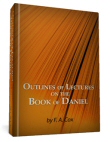
This volume contains eighteen essays, based on lectures on the Book of Daniel, by eminent Baptist theologian Francis Augustus Cox, founder of Baptist Magazine.
This book may be read with profit and pleasure. A current of devout feeling runs through the work, and the style has that copious and animated flow, which distinguishes all the productions of the author.
—The Christian Review
It contains sound application of the symbols of prophecy, followed up by practical reflections on the various subjects which are brought before the reader. We cordially recommend the work to the attention of our readers.
—The Congregational Magazine
Francis Augustus Cox was preaching as early as his teen years, and after earning his M.A. from Edinburgh University, he became a Baptist minister. He founded Baptist Magazine in 1809, and was a prolific author, including multiple biographies of women in the Bible.
Reviews
7 ratings

Jason Issel
9/20/2021
I am a student of Liberty University, and I use this in a deep study of end times, and this commentary is well written and uses a good interpretation of scripture. I am very impressed. Thank you. This is in my personal library so I recommend it.
M. David Johnson
3/27/2015

Pedro J Martinez
10/29/2014
AeliusCicero
4/15/2014

Larry Proffitt (I
11/13/2013

Caleb Allen
10/12/2013
Eduardo Vega
9/25/2013